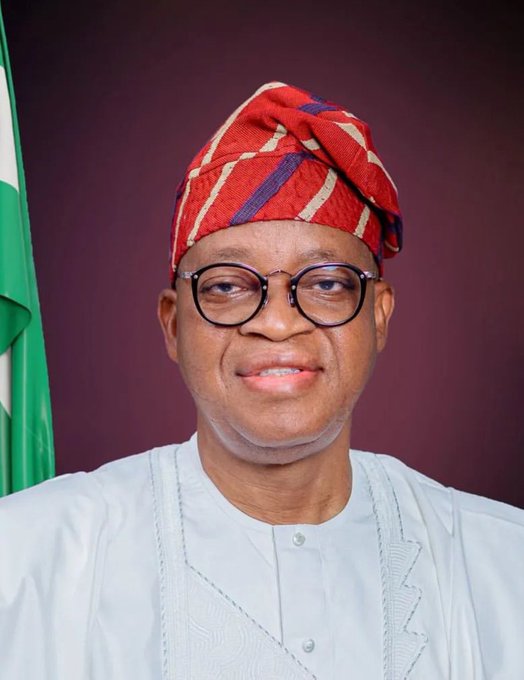The Federal Government has unveiled plans to implement the National Single Window (NSW) system, aiming to reduce port operation costs by at least 25%. This initiative is expected to enhance trade efficiency, eliminate bottlenecks, and improve transparency in Nigeria’s maritime sector.
Speaking at a stakeholders’ forum in Lagos, the Minister of Marine and Blue Economy, Adegboyega Oyetola, emphasized that the NSW system would transform Nigeria’s port operations. “By streamlining operations, improving transparency, and minimizing delays, the system not only drives cost savings but also strengthens overall trade facilitation,” Oyetola stated.
Tackling High Costs at Nigerian Ports
The cost of doing business at Nigerian ports is among the highest in West Africa. According to a World Bank report, these costs can be up to 40% higher than in neighboring countries due to inefficiencies such as administrative bottlenecks and excessive delays. This situation results in an estimated revenue loss of ₦2.5 trillion annually.
The implementation of the NSW system is expected to address these inefficiencies by providing a unified electronic platform where trade-related transactions can be conducted seamlessly across multiple government agencies. This digital transformation, Oyetola said, will “eliminate redundancies, reduce processing times, and ensure seamless coordination among government agencies and private sector actors.”
Reducing Delays and Enhancing Efficiency
One of the biggest challenges facing Nigeria’s ports is long vessel and truck turnaround times. Oyetola revealed that recent efforts to improve port logistics have already yielded positive results. “The vessel turnaround time has decreased from an average of seven days to five days, while truck turnaround time has gone from ten days to just a few hours,” he noted.
The government has also made significant improvements in port infrastructure, including the deployment of tugboats, mooring boats, pilot cutters, bollards, and fenders to ensure smoother operations. These measures, the Minister stressed, are part of a broader plan to position Nigeria as the maritime hub of West Africa.
Multimodal Connectivity and Port Modernization
Beyond cost reduction, the Federal Government is prioritizing multimodal connectivity to enhance trade and reduce transportation costs. Efforts are underway to improve road, rail, and inland waterway links to and from the ports, making cargo movement more efficient.
Oyetola highlighted the ongoing modernization of Apapa and Tin Can Island Ports, which are being used as pilot projects. “Our ports have aged infrastructure nearing the end of their economic lifespan. We are modernizing these facilities to boost efficiency and enhance hinterland connectivity,” he explained.
Additionally, the Nigerian Ports Authority (NPA) has acquired two state-of-the-art tugboats, with plans to procure more marine crafts to further boost operational efficiency.
A Boost for Nigeria’s Maritime Economy
The maritime sector is a crucial component of Nigeria’s economy, offering untapped opportunities in shipping, fisheries, renewable energy, and coastal tourism. With an expansive coastline of 853 kilometers and a maritime area covering over 46,000 square kilometers, Nigeria is well-positioned to leverage these resources for sustainable economic growth.
“The marine and blue economy holds immense potential to contribute significantly to our GDP, create thousands of jobs, and drive regional and global trade,” Oyetola said. However, he acknowledged that bureaucratic obstacles and inefficient coordination among stakeholders have hindered the sector’s growth.
The NSW system, he argued, would provide the “efficient, integrated, and secure logistics ecosystem” necessary to unlock the sector’s full potential.
As part of its broader maritime sector reforms, the government is working on establishing a National Flag Carrier through a Public-Private Partnership (PPP). This initiative, according to Oyetola, will “generate employment, reposition the maritime sector, and provide revenue streams for the government.”
Additionally, plans for disbursing the Cabotage Vessel Financing Fund (CVFF) are being finalized. The fund is intended to support the growth of Nigeria’s shipping sector by providing financial assistance to local vessel operators.
The implementation of the NSW aligns with global trade best practices. According to the Managing Director of the NPA, Dr. Abubakar Dantsoho, the system will interconnect all stakeholders involved in foreign trade, enabling them to perform trade procedures on a single platform.
Dantsoho described the NSW as the “global trade best practice for the electronic exchange of information” and noted that it is designed to facilitate over 500 million twenty-foot equivalent units (TEU) movements and billions of tonnes of cargo across sea, air, and land transport.
“This concrete move by His Excellency, President Bola Ahmed Tinubu, to implement the NSW in Nigeria is pivotal to deepening the competitiveness of our ports and positioning the good people of Nigeria to reap greater benefits from global trade,” he added.

